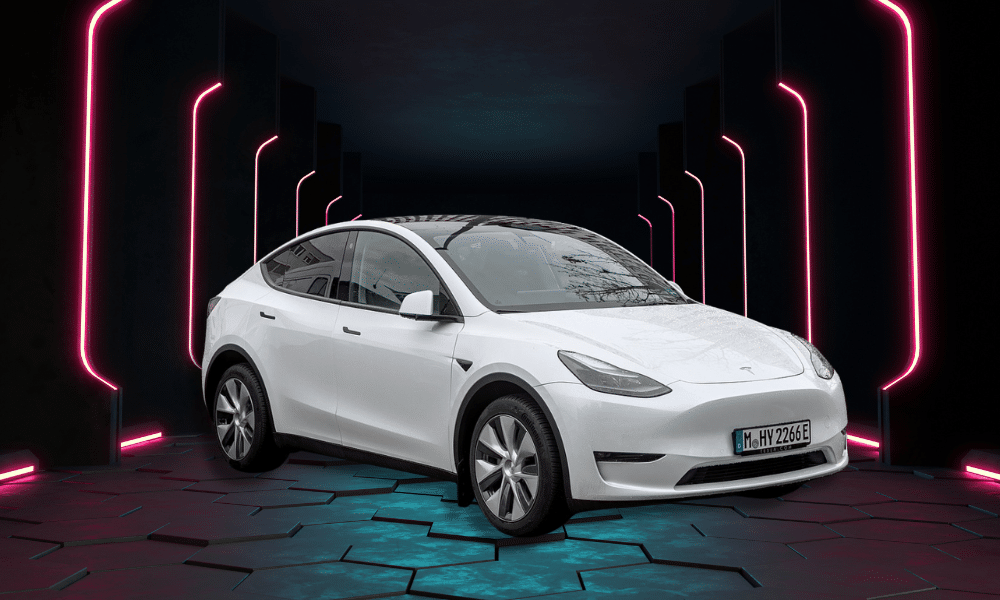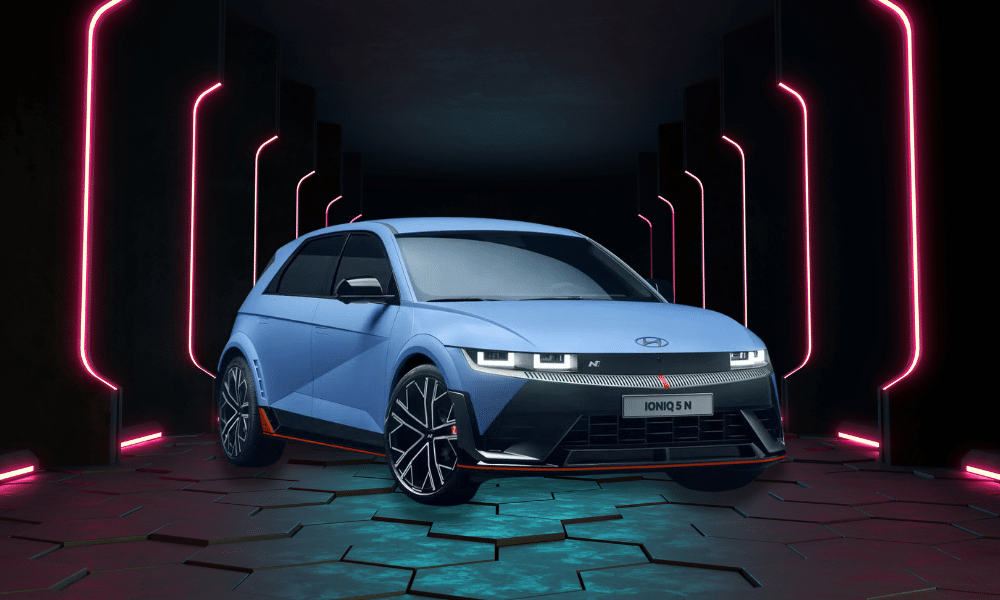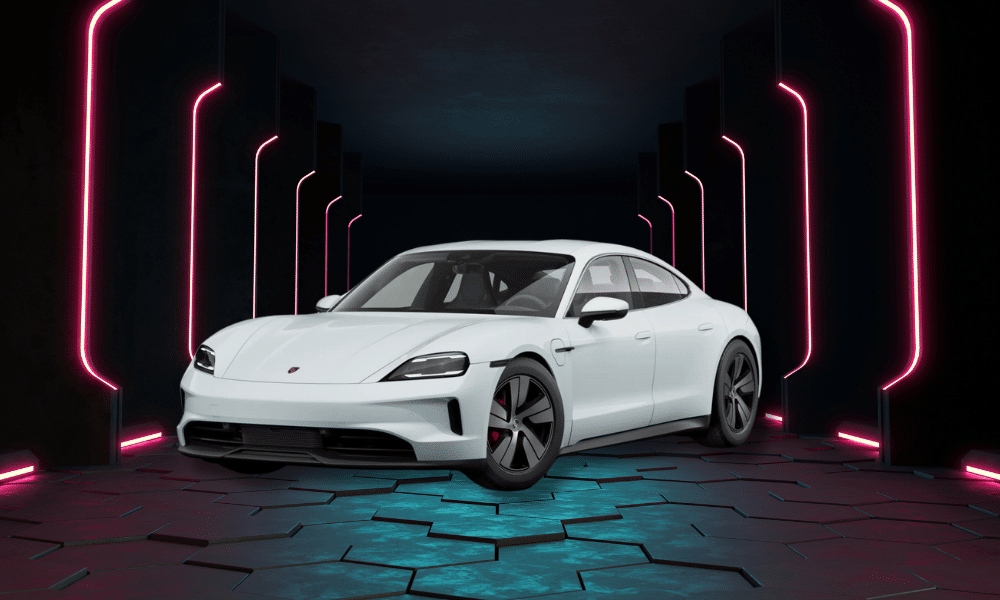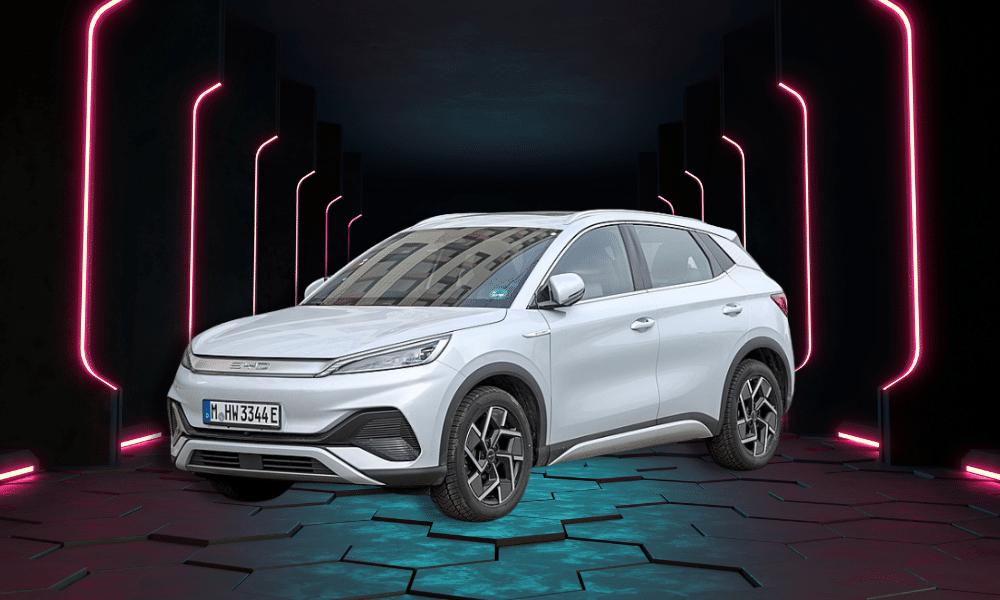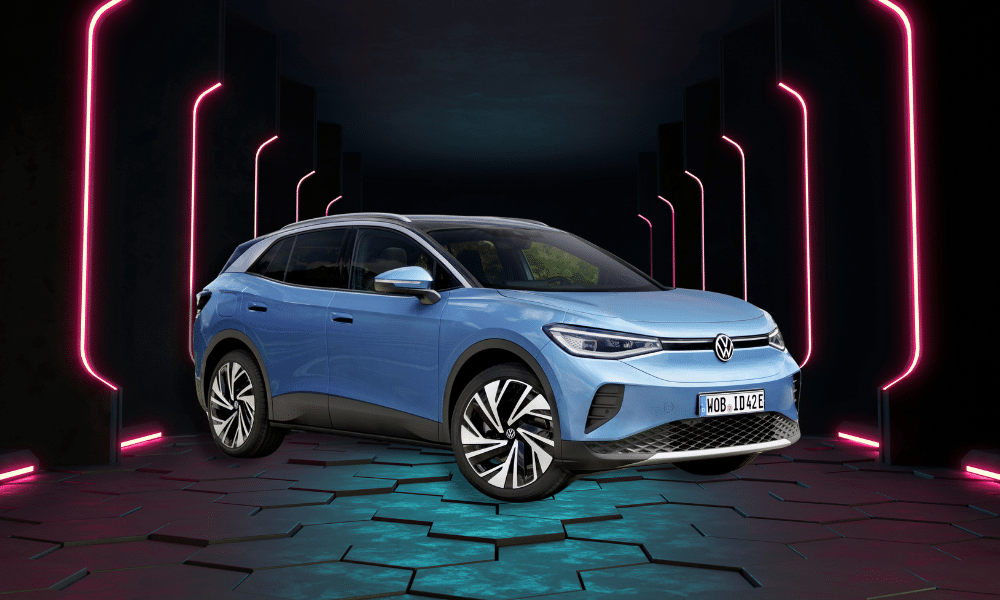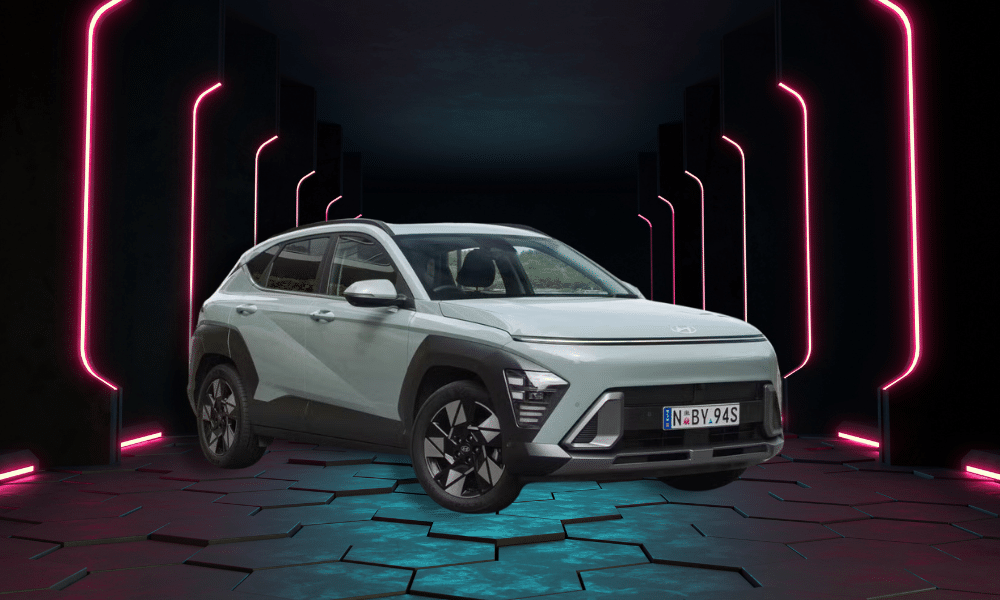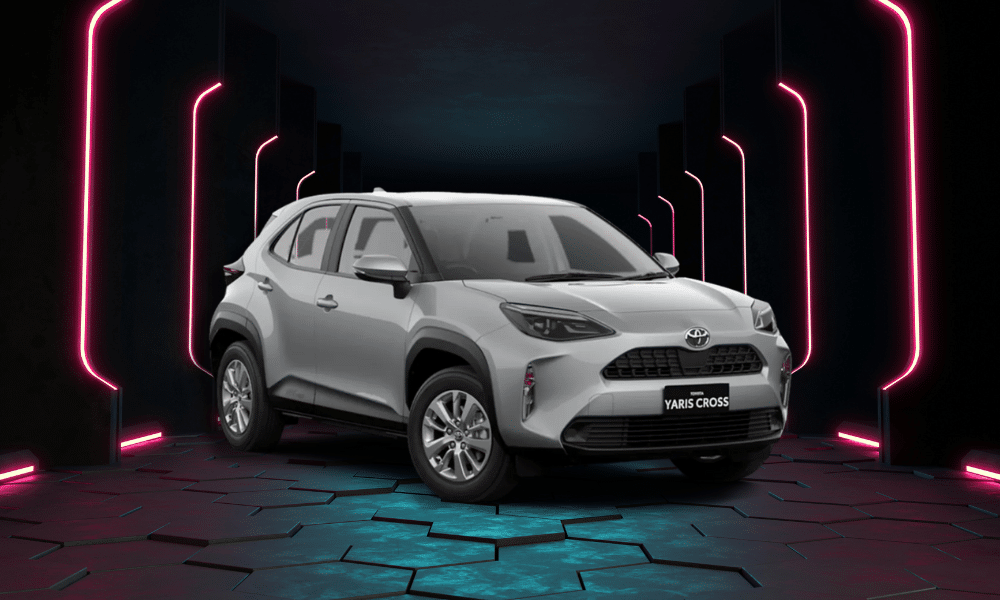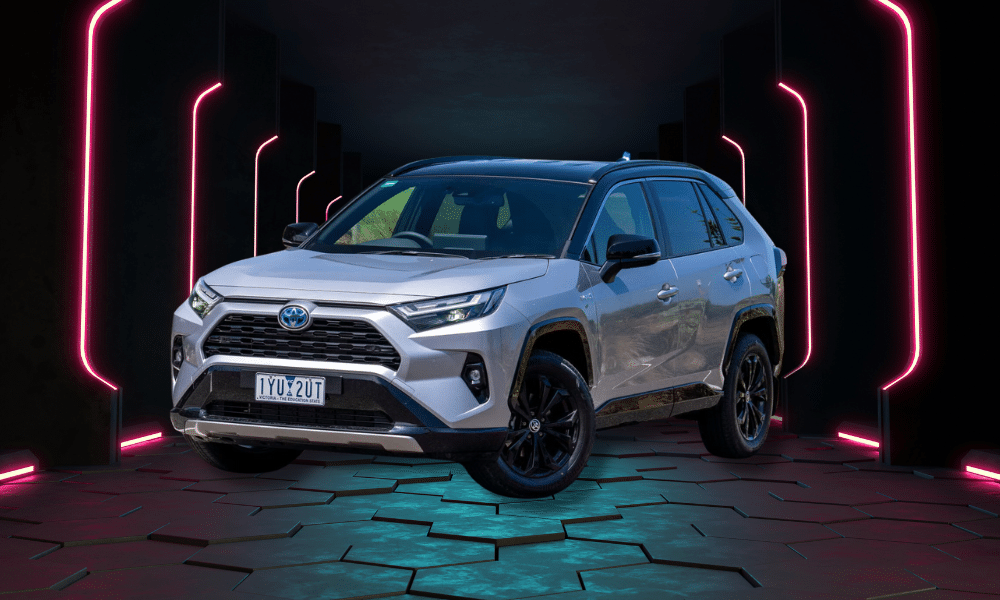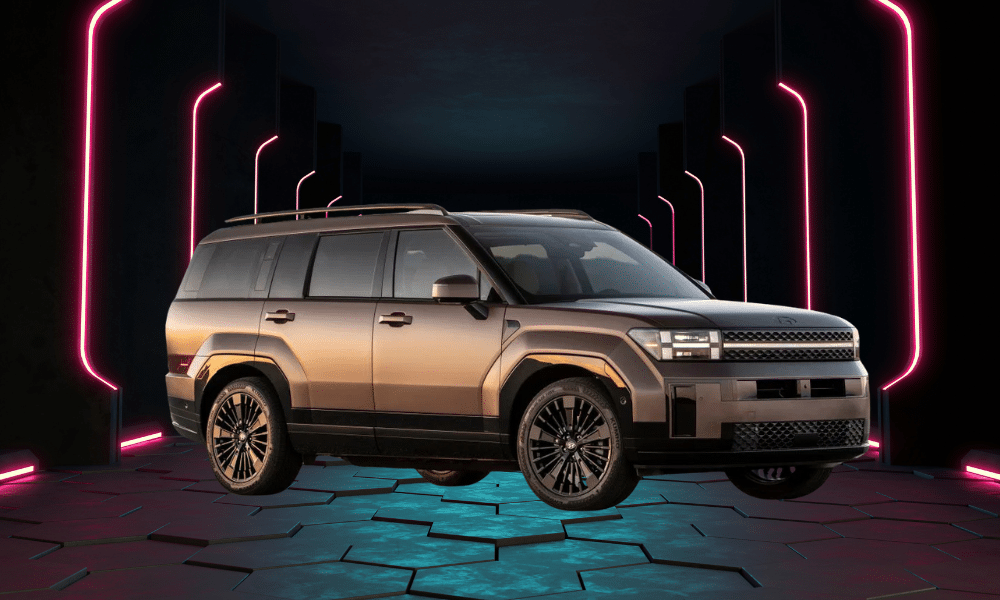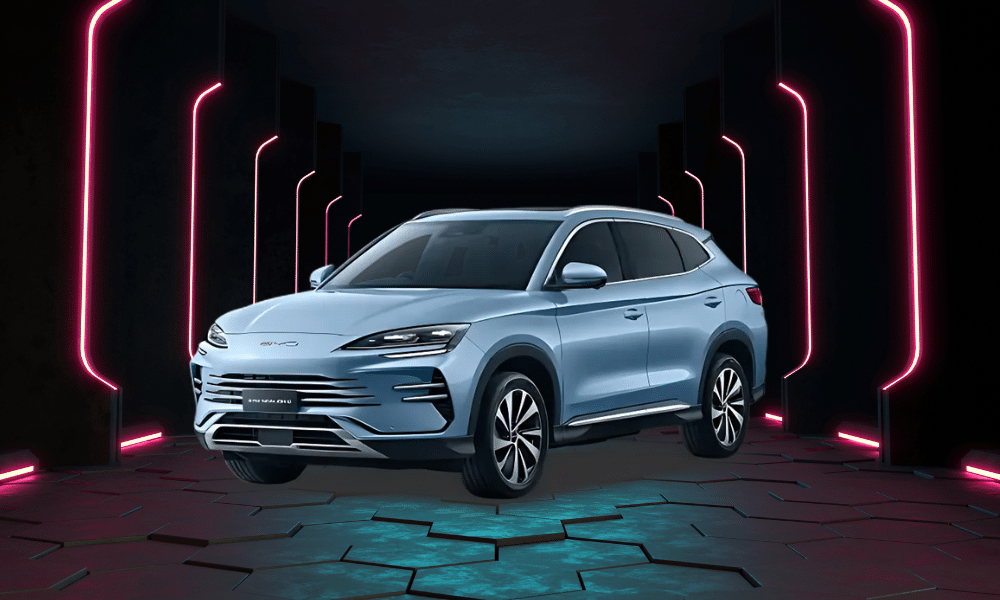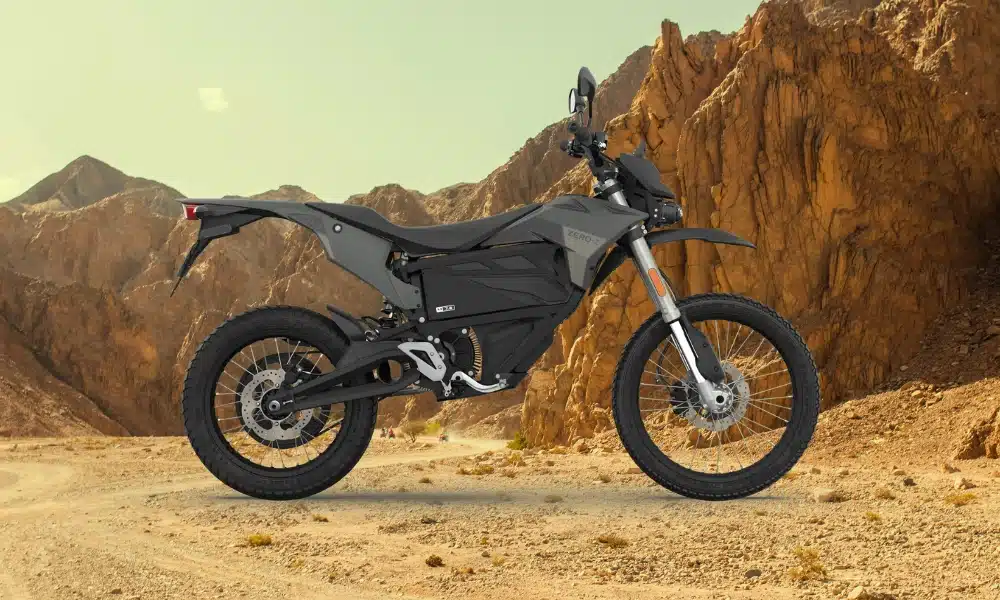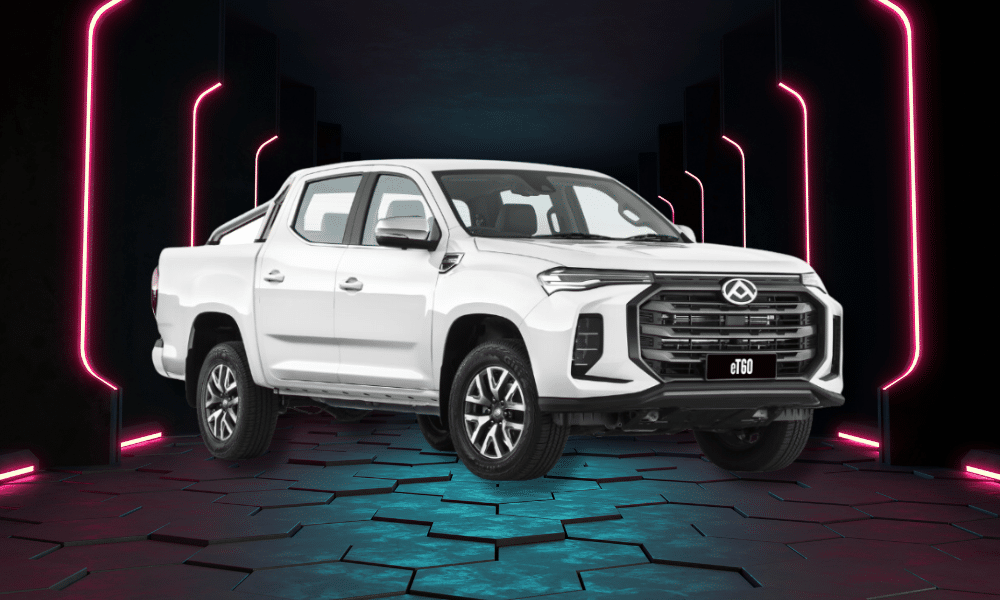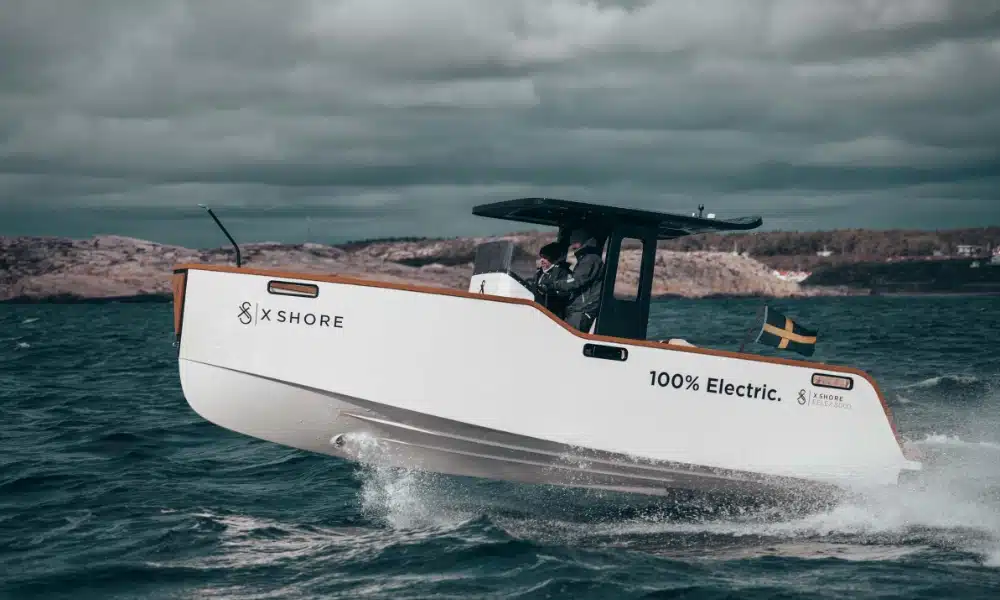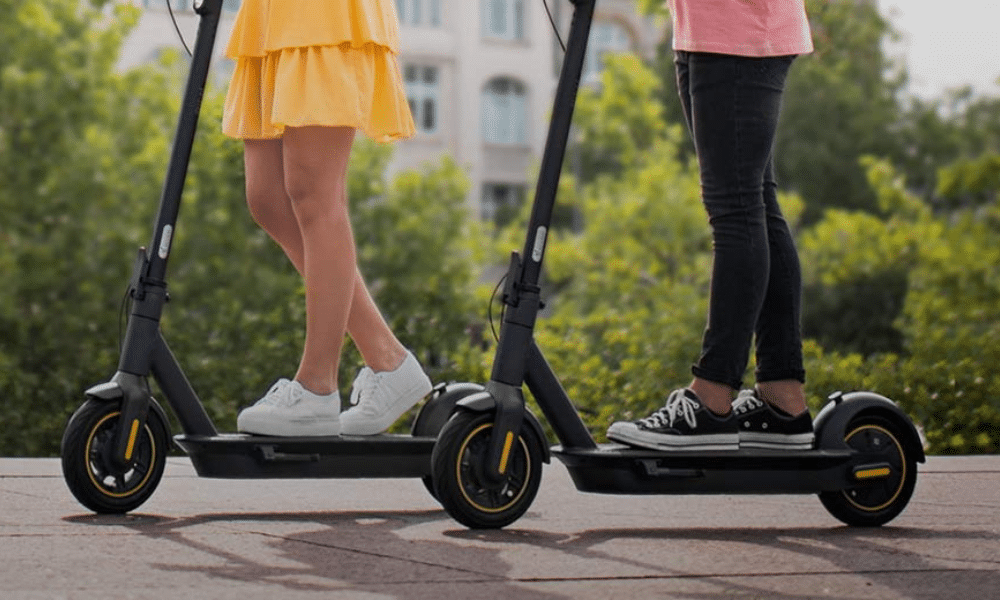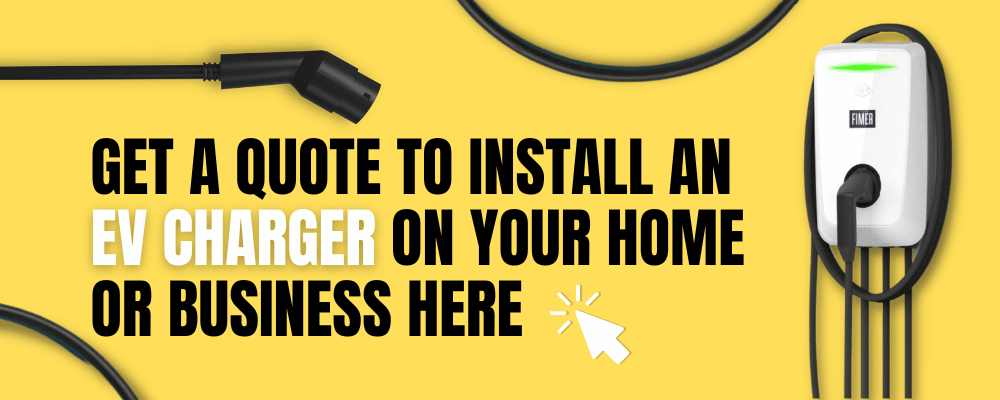Electric Vehicles (EVs) are no longer a futuristic concept, but a tangible reality, reshaping the way we think about transportation. This guide will delve into the world of EVs, exploring the latest technologies and top models available in the Aussie market. From sleek sedans to powerful UTEs, we’ll uncover the diverse range of EVs that cater to various lifestyles and needs.
On this page
The electrification of vehicles in Australia has progressed significantly in 2024. This year, it’s expected that approximately 110,000 new electric vehicles (EVs) will have been sold nationwide, marking a substantial increase from previous years.
As of July 2024, Australia has achieved a significant milestone with over 1,000 active fast-charging sites for electric vehicles (EVs). These sites encompass nearly 2,000 individual DC fast chargers, offering a total of 3,070 fast-charger plugs nationwide. The majority of these plugs utilize the CCS standard, accounting for approximately 70.4% of the total.
The rapid growth in charging infrastructure is set to continue, with projections indicating that the number of public fast-charging sites in Australia will double again.
State governments continue to offer financial incentives to encourage motorists to switch to EVs. These incentives include subsidies of up to $3,500 towards the purchase price of electric cars, as well as exemptions from stamp duty and registration fees in certain regions.
Australians are increasingly adopting EVs for various reasons, including environmental benefits and lower running and maintenance costs. With the ongoing expansion of charging infrastructure and supportive government policies, EVs are set to become even more prevalent on Australian roads in the near future.
Energy Matters' review of top EVs
As passionate advocates for sustainable transportation, we’ve had the privilege of personally testing and reviewing some of the most exciting EVs currently available.
BMW i4 eDrive40
The BMW i4 eDrive40 is an all-electric Gran Coupé that combines dynamic performance with everyday practicality. Priced from $99,900 plus on-road costs in Australia, it features a rear-wheel-drive layout powered by a single electric motor delivering 250kW of power and 430Nm of torque. This setup enables acceleration from 0 to 100 km/h in just 5.7 seconds. Equipped with an 83.9 kWh battery, the i4 eDrive40 offers a substantial range of up to 590 kilometers on the WLTP cycle, making it suitable for both urban commutes and longer journeys. The interior is designed for comfort and technology, featuring a curved display that integrates the instrument cluster and infotainment system, along with premium materials throughout. Standard equipment includes 19-inch alloy wheels, adaptive suspension, and a suite of driver assistance systems. Additionally, BMW provides a five-year/unlimited-kilometer warranty, with the battery covered for eight years or 160,000 kilometers, ensuring peace of mind for owners.
- Range: Up to 590km
- Power: 250 kW
- Acceleration (0-100 km/h): 5.7 seconds
- Torque: 430 Nm
- Battery capacity: 83.9 kWh
- Charging time: 8 hours 20 minutes (11 kW)
Jaguar I-PACE
The Jaguar I-PACE is a stunning electric SUV that seamlessly blends luxury, performance, and sustainability. Its sleek design, spacious interior, and advanced technology create a truly premium driving experience. The I-PACE’S powerful electric motors deliver instant torque and impressive acceleration, while its 90 kWh battery pack provides a commendable range. With features like adaptive cruise control, lane-keeping assist, and automatic emergency braking, the I-PACE prioritises safety and convenience.
- Range: Up to 470km (WLTP)
- Power: 394 horsepower
- Acceleration: 0-100 km/h in under 5 seconds
- Torque: 512 lb-ft
- Charging time: DC fast charging-80% in 40 minutes/AC charging-varies based on charger power.
- Cost: Around AUD$120,000-AUD$150,000
MG ZS EV
The MG ZS EV is a budget-friendly electric SUV that provides a practical and affordable entry into electric mobility. Its 51 kWh battery provides a range of up to 320km, making it suitable for daily commutes and short trips. The ZS EV’s interior is spacious and comfortable, with ample room for passengers and cargo. While its performance may not be as exhilarating as higher-end EVs, it provides a smooth and efficient driving experience. The ZS EV’s V2L function adds versatility, allowing you to power external devices. However, its range and charging speed may limit its suitability for long-distance travel.
- Range: Up to 320km (WLTP)
- Power: 105 kW
- Acceleration: 0-100 km/h in around 8.6 seconds
- Torque: 280Nm
- Battery capacity: 51 kWh
- Charging time: DC fast charging-80% in 30-40 minutes/AC charging-varies based on charger power.
- Cost: Around AUD$40,000-AUD$50,000
Volvo C40
The Volvo C40 Recharge is a stylish and sustainable electric SUV that offers a compelling blend of performance, luxury, and eco-friendliness. Its sleek design, spacious interior, and advanced technology make it a desirable choice for discerning drivers. The C40’s impressive range and fast-charging capabilities alleviate range anxiety, while its commitment to sustainability ensures a greener future. With its focus on safety, comfort, and connectivity, the Volvo C40 Recharge sets a new standard for electric vehicles.
- Range: Up to 460km (WLTP)
- Power: Varies by model (single or dual motor options)
- Acceleration: 0-100 km/h in around 6-7 seconds
- Torque: Varies by model
- Battery capacity: 69kWh and 78 kWh options
- Charging time: DC fast charging-80% in 25-30 minutes/AC charging-varies based on charger power
- Cost: AUD$60,000-AUD$80,000
Top 5 Battery Electric Vehicles (BEVs) in Australia
Here are five of the most anticipated electric vehicles that are poised to make a significant impact on the Australian market:
1. Tesla Model Y
The Tesla Model Y is a mid-sized SUV offering ample interior space, modern design, and impressive technology. Available in Australia in two variants—Rear-Wheel Drive (RWD) and Performance—the RWD is priced from $72,300 plus on-road costs but does not qualify for Australian EV rebates. Its minimalist interior is dominated by a 15-inch touchscreen, which centralises controls for everything from infotainment to windshield wipers while offering over-the-air updates to improve functionality over time. The cabin includes features like heated, vegan-friendly seats, a panoramic sunroof, and a premium 13-speaker sound system. However, Tesla has omitted a portable charger, leaving buyers to purchase one separately or install a home wallbox.
Performance-wise, the Model Y RWD boasts a real-world range of approximately 400 km on a single charge, with energy efficiency rated at 14.6kWh per 100 km. Charging is flexible, supporting both Tesla’s Supercharger network and universal options like Type 2 and CCS plugs.
With 194kW of power, the car offers swift acceleration comparable to entry-level luxury SUVs, though its taut suspension prioritises athletic handling over ride comfort. Practicality is another strong suit, with generous luggage capacity and app-enabled connectivity features, such as remote monitoring and unlocking. While its minimalist design and firm ride may not appeal to everyone, the Tesla Model Y remains a compelling choice for tech-savvy, eco-conscious drivers.
- Range: Up to 533km (WLTP)
- Power: Single motor RWD-216hp/Dual motor AWD-340hp (long range) or 450 hp (performance)
- Acceleration: Single motor RWD-6.9 seconds (0-100 km/h)/Dual motor AWD-5 seconds (long range) or 3.7 seconds (performance)
- Torque: Varies by model
- Battery capacity: DC fast charging-80% in 25-30 minutes/AC charging-varies based on charger power
- Cost: Around AUD$70,000-AUD$100,000
2. Hyundai IONIQ 5 N
The 2024 Hyundai Ioniq 5 N is a trailblazing electric vehicle (EV) designed for enthusiasts seeking an electrified driving experience with a focus on performance. Priced around $125,000, this bold and aggressive track-ready EV redefines expectations with a host of advanced features. Its exterior is a masterclass in design, from a dynamic front grille that adapts for cooling to 21-inch forged alloy wheels and a menacing rear spoiler. Measuring longer, wider, and lower than its standard counterpart, the Ioniq 5 N offers unparalleled grip with Pirelli P-Zero tyres and a wider track, delivering an athletic presence. Inside, the car combines sportiness and luxury with illuminated leather bucket seats, Alcantara accents, a race-inspired steering wheel, and dual 12.3-inch high-definition displays seamlessly integrating infotainment and driving controls.
Underneath its striking design lies a powerhouse, with dual electric motors producing up to 478 kW of power and 770 Nm of torque on “N Grin Boost.” Enhanced by advanced torque vectoring, adaptive dampers, and a sophisticated rear differential, the Ioniq 5 N corners with precision and handles like a rocket on wheels. Features like N mode, drift mode, and launch control elevate its performance, while the faux exhaust notes and simulated engine sounds add a layer of engaging theatrics.
Whether sprinting from 0-100 km/h in under 3.5 seconds or fine-tuning regenerative braking with N-pedal mode, this EV delivers a sensory overload. The Ioniq 5 N isn’t just a car; it’s a declaration of passion for driving, blending futuristic innovation with exhilarating performance.
- Range: Up to 400 km
- Power: Up to 478 kW with “N Grin Boost” mode
- Acceleration: 0–100 km/h in 3.4 seconds (“N Grin Boost” mode)
- Torque: Up to 770 Nm
- Battery Capacity: 77.4 kWh
- Charging: 10–80% in 18 minutes using a 350 kW fast charger
- Cost: Starting at AUD 111,000 (before on-road costs)
3. Porsche Taycan 4S
The 2024 Porsche Taycan represents a significant leap forward for luxury electric vehicles, delivering enhanced range, faster charging, and improved performance while maintaining the sporty essence Porsche is renowned for. With up to 35% more range and advanced features like high-resolution HD matrix headlights, dual charging ports, and a refined interior with updated graphics, the Taycan sets a new benchmark in the EV market. The exterior changes are subtle but purposeful, including new illuminated Porsche badging and sleeker lighting designs that enhance the vehicle’s aesthetic appeal. Porsche’s commitment to electrification shines through, with plans to electrify 80% of its lineup by 2030 and follow the Taycan with fully electric models such as the Macan and 718 Cayman.
Internally, the Taycan gains practical updates, like a standard mode switch on the steering wheel and an optional push-to-pass button for added performance bursts. Despite the growing challenges in the EV market, Porsche’s strong brand appeal ensures robust demand, as evidenced by the success of the first-generation Taycan. The latest model not only addresses customer feedback but also reinforces Porsche’s leadership in the premium EV segment, blending cutting-edge technology with the timeless appeal of German engineering.
- Range: Between 474–557 km (WLTP combined)
- Power: Up to 400 kW (with launch control and overboost)
- Acceleration: 0–100 km/h in 3.7 seconds
- Torque: Up to 695 Nm (with launch control)
- Battery Capacity: 89 kWh gross (82.3 kWh usable)
- Charging: 10–80% in approximately 18 minutes using an 800 V DC fast charger
- Cost: Starting at AUD 186,300
4. BYD Atto 3
The BYD Atto 3 is an affordable electric vehicle (EV) aimed at urban drivers, offering impressive features at a competitive price. It comes in two models: the Standard Range, priced at $48,011, and the Extended Range at $51,011 (excluding on-road costs). Incentives, like Victoria’s $3,000 rebate, can reduce the Extended Range’s drive-away price to about $51,000. The Standard model features a 49.92 kWh battery with a 345 km range, while the Extended model upgrades to a 60.48 kWh battery, providing up to 420 km. Both are powered by a 150 kW/310 Nm motor, accelerating from 0–100 km/h in 7.3 seconds, with a focus on efficient, quiet urban commutes.
Inside, the Atto 3 boasts modern technology, including a rotating 12.8-inch touchscreen, Apple CarPlay, Android Auto, and wireless charging. Safety is a priority with its ANCAP five-star rating, dual airbags, adaptive cruise control, and advanced emergency braking systems. The Extended model offers a decent charging rate—80% capacity in 40 minutes via DC fast charging and nine hours with a 7 kW AC wall box. Though its tires and regenerative braking have minor limitations, the Atto 3 delivers solid performance and practicality, making it a compelling entry point for EV enthusiasts.
- Range: Up to 420 km (WLTP) for the Extended Range version
- Power: 150 kW
- Acceleration: 0–100 km/h in 8.5 seconds
- Torque: 310 Nm
- Battery Capacity: 60.4 kWh (Extended Range)
- Charging: 10–80% in approximately 40 minutes using an 80 kW DC fast charger
- Cost: Starting at around AUD 48,000 (before on-road costs)
5. Volkswagen ID.4
The 2023 Volkswagen ID.4 is a mid-size electric SUV that offers a balanced blend of performance, technology, and comfort. The Pro Performance variant comes equipped with a 77 kWh battery, offering an impressive range of 522 km on the WLTP cycle. This version also supports fast charging at 125 kW, enabling a 0-80% charge in just 33 minutes. Inside, the ID.4 features a 12.0-inch touchscreen, tri-zone climate control, power-adjustable Ergocomfort seats, and wireless Apple CarPlay. However, some interior features, like the ID Display on the steering column, may feel less intuitive compared to VW’s other digital displays. The overall interior is spacious, with ample room in the back seats and a 543L boot, but the use of plastics has received some criticism, lacking the premium feel of other VW models.
On the road, the ID.4 offers a smooth, rear-wheel-drive experience. While not the fastest electric SUV, with a 0-100 km/h time of 8.5 seconds, it provides a comfortable and stable ride, especially thanks to its regenerative braking system and well-tuned suspension. The ID.4’s driving dynamics are focused on ease of use and comfort, making it a solid choice for everyday driving. Safety features include advanced driver assistance systems like automatic emergency braking, lane-keeping assist, and a Level 2 autonomous driving suite in the Pro Performance version. With a starting price around AUD 60,000, the ID.4 provides competitive value compared to rivals like the Tesla Model Y and Kia EV6, offering strong EV credentials at a reasonable cost.
- Range: Up to 470 km (based on the larger 82 kWh battery)
- Power: 201 hp for the base rear-wheel-drive (RWD) model; 282 hp for the Pro and Pro S RWD versions; up to 335 hp for the all-wheel-drive (AWD) version
- Acceleration: 0-100 km/h in 5.9 seconds for the RWD model, 4.9 seconds for the AWD model
- Torque: Up to 500 Nm
- Battery Capacity: 82 kWh (larger battery)
- Charging: 10-80% in about 30 minutes with a fast charger
- Cost: Starting at around AUD 58,000 (depending on the model and configuration)
Top 5 Plug-in Hybrid Electric Vehicles (PHEVs) in Australia
The rise of plug-in hybrid electric vehicles (PHEVs) in Australia offers an efficient alternative for drivers seeking a balance between electric power and traditional fuel. This section explores the top 5 PHEVs currently on the market, highlighting their performance, range, and features.
1. Hyundai Kona Hybrid
The Hyundai Kona Hybrid is the brand’s second petrol-electric vehicle in its current lineup, following the Santa Fe Hybrid and preceding models like the i30 Sedan Hybrid and Tucson Hybrid. It expands the Kona range, joining the petrol-powered variants, though it has been delayed from launching alongside the Kona Electric due to ongoing pricing negotiations. Available in four front-wheel-drive trims, the Kona Hybrid starts at $36,000, a $4,000 premium over the petrol version. The hybrid mirrors the petrol variant’s equipment list, offering features like 18-inch alloy wheels, a 12.3-inch main display, Hyundai’s Bluelink remote connectivity, dual-zone climate control, wireless smartphone integration, and more. Unique to the Hybrid are regenerative braking, torque-vectoring control, and a column-mounted gear selector that frees up space for a large open cup holder.
Inside, the Kona Hybrid emphasises a balance of modern design and practicality. A sharp and expansive 12.3-inch central screen is complemented by a steering wheel and dashboard equipped with physical controls for key functions, avoiding the pitfalls of overly digital interfaces. Higher trims, such as the Premium, add a second 12.3-inch digital display for the driver, while base models feature retro-futuristic digital-analog gauges with a 4.2-inch screen. This thoughtful interior layout ensures a user-friendly experience, catering to both tech enthusiasts and those who appreciate tactile controls.
- Range: Up to 700 km (WLTP combined cycle)
- Power: 104 kW (combined)
- Acceleration: 0–100 km/h in 10.8 seconds
- Torque: 265 Nm
- Battery Capacity: 1.32 kWh (with a petrol engine)
- Charging: No need for external charging (self-charging hybrid)
- Cost: Starting at approximately AUD 45,000 (before on-road costs)
2. Toyota Yaris Cross
The Toyota Yaris Cross is Toyota’s smallest SUV in Australia, with a distinctive design that sets it apart from its Yaris hatchback counterpart. Sporting a rugged mini-RAV4 aesthetic, it appeals to buyers seeking a compact yet capable vehicle. Launched in November 2020, it occupies a niche below the Corolla Cross and RAV4 in Toyota’s SUV lineup, built on the TNGA-B platform with efficient three-cylinder engines. Hybrid models are particularly popular, accounting for over 75% of Yaris Cross sales due to their excellent fuel economy and responsive performance.
Available in three trims priced from $26,990 to $37,990 (excluding on-road costs), the Yaris Cross offers a five-star ANCAP safety rating, generous standard safety features, and sufficient interior space for a small SUV. While the rear seating area is tight for adults, it accommodates children comfortably, though the limited rear amenities—such as a lack of USB ports, air vents, and grab handles—may disappoint in higher trims. Up front, the Yaris Cross prioritises function over luxury, with some cost-saving measures evident in its features and materials, such as a dated gear selector and a flimsy cargo cover.
- Range: Up to 3.8L/100km fuel consumption (FWD hybrid models)
- Power: 85 kW total system output (FWD hybrid)
- Acceleration: Not specified
- Torque: 120 Nm (petrol engine) + 141 Nm (electric motor) for FWD models; AWD adds 52 Nm from a rear motor
- Battery Capacity: 4.3 Ah lithium-ion battery
- Charging: Self-charging hybrid; no external charging required
- Cost: Starting at AUD 30,900 (FWD GX model) to AUD 39,880 (AWD Urban model)
3. Toyota Rav4 Hybrid
The updated Toyota RAV4 now includes a larger 10.5-inch touchscreen, available in higher trims, offering a brighter, higher-resolution display. While it enhances the interior’s modern feel, the screen menu system can be confusing initially, with some settings like sound adjustments being harder to navigate. The new digital instrument cluster adds a crisp, colourful interface that is user-friendly and easy to control with steering wheel buttons. The vehicle’s controls remain straightforward, with essential features like climate and seat adjustments placed in intuitive locations, making it simple to operate while driving.
The RAV4 Hybrid offers a 2.5-litre petrol engine paired with an electric motor, providing a combined output of 160 kW in 2WD models. The AWD versions feature an additional rear motor, boosting output to 163 kW. Despite its efficiency, the towing capacity is relatively modest, with the 2WD Hybrid capable of towing 480 kg braked. The RAV4 excels in storage space, with several compartments, large door pockets, and cup holders. It also offers a small sunroof, though it’s on the smaller side compared to modern standards. For those not interested in waiting for a hybrid, there is also a well-regarded 2.0-litre petrol engine variant offering decent efficiency for urban driving.
- Range: Up to 700 km on a full tank (approx. 39 MPG combined fuel efficiency)
- Power: 219 hp (combination of 2.5L 4-cylinder engine and electric motors)
- Acceleration: 0–100 km/h in around 7.4–8 seconds
- Torque: 163 lb-ft (at 5300 RPM)
- Battery Capacity: Nickel-metal hydride (NiMH) battery, no specific kWh capacity listed
- Charging: No external charging required (battery is recharged via regenerative braking and the engine)
- Cost: Starting at approximately AUD 46,000 (before on-road costs)
4. Hyundai Santa Fe Hybrid
The Hyundai Santa Fe Hybrid offers a compelling mix of practicality and efficiency for families looking for a spacious, eco-friendly SUV. With a 1.6-litre turbocharged engine paired with an electric motor, it delivers a combined output of 231 hp and 367 Nm of torque, providing decent performance without compromising on fuel economy. The hybrid system makes it an ideal choice for those seeking a more sustainable option, offering a reasonably long range of around 600 km per tank. The cabin is spacious and well-equipped, with modern features such as a 12.3-inch touchscreen, advanced driver assistance systems, and ample room for passengers and cargo. However, while the Santa Fe Hybrid’s handling is competent, it doesn’t offer the same dynamic driving experience as some competitors in its class.
While the Hyundai Santa Fe Hybrid impresses with its overall value, its pricing falls in the mid-to-upper range for the segment, starting at approximately AUD 60,000 to 80,000 depending on the trim. It competes directly with rivals like the Toyota Kluger Hybrid and Mitsubishi Outlander PHEV but stands out with its refined features and technology package. One of the key advantages of the Santa Fe Hybrid is its generous standard safety suite, which includes multiple airbags, lane-keeping assist, and rear cross-traffic alert. However, the absence of a plug-in hybrid version might limit its appeal for those seeking an even greener option. Overall, the Santa Fe Hybrid is a strong choice for those prioritising a blend of efficiency, space, and tech features in a family SUV.
- Range: Estimated combined fuel efficiency offers a reasonable range per tank (around 600 km).
- Power: 231 hp (171 kW) with a 1.6L turbocharged engine and electric motor.
- Acceleration: 0-100 km/h in approximately 8.5 seconds.
- Torque: 367 Nm (271 lb-ft).
- Battery Capacity: Battery capacity is integrated into the hybrid powertrain but typically not specified in kWh.
- Charging: Regenerative braking charges the hybrid battery, so no external charging is required.
- Cost: Starting at approximately AUD 60,000 – 80,000 depending on trim and specifications.
5. BYD Sealion 6
The BYD Sealion 6 is an attractive electric SUV that brings impressive features to the market. Available in two variants, the Dynamic and Premium models, it offers a blend of practicality and performance. The Premium model stands out with its powerful 238 kW dual-motor setup, providing a robust 550 Nm of torque that delivers an engaging driving experience, accelerating from 0-100 km/h in just 5.9 seconds. Its battery capacity of 18.3 kWh ensures reasonable range, with up to 92 km on electric power alone in the Dynamic model. The Sealion 6 is well-equipped for the price, offering advanced safety features, a modern interior with a 15.6-inch touchscreen, and a comprehensive suite of driver assistance systems.
However, there are some compromises, particularly in terms of range. The Dynamic model, with its smaller power output, offers up to 81 km on electric power, which may be limiting for long-distance drivers. Additionally, the exterior design, while sleek and contemporary, may not be as distinctive as some competitors in the SUV segment. That said, its affordability—starting at AUD 48,990—makes the Sealion 6 a compelling option for those looking for a practical electric vehicle with solid performance. The BYD Sealion 6 is an interesting choice for city dwellers or those seeking a second electric vehicle for short trips.
- Range: Up to 92 km (Dynamic model), 81 km (Premium model) on electric power alone.
- Power: 160 kW (Dynamic), 238 kW (Premium) with dual motors.
- Acceleration: 0–100 km/h in 8.5 seconds (Dynamic), 5.9 seconds (Premium).
- Torque: 300 Nm (Dynamic), 550 Nm (Premium).
- Battery Capacity: 18.3 kWh BYD Blade battery.
- Charging: DC fast charging (18 kW) for quicker recharge times.
- Cost: Starting at approximately AUD 48,990 (Dynamic model) before on-road costs.
Electric Motorcycles
Electric motorcycles are rapidly gaining popularity as eco-friendly alternatives to traditional petrol-powered bikes, offering thrilling performance and reduced environmental impact. In this section, we review some of the most exciting electric motorcycles on the market, evaluating their range, power, and design to help you choose the perfect ride.
Zero FX
- Power: 27 hp with 78 lb-ft of torque, delivering excellent acceleration.
- Battery Options: Available with either a ZF3.6 or ZF7.2 battery configuration, offering up to 91 miles of city riding on a single charge.
- Performance Modes: Offers Eco and Sport modes, with further customisations available through the Zero Motorcycles app.
- Swappable Battery Capability: The ZF3.6 version supports hot-swappable batteries for quick recharges.
- Lightweight and Agile: Weighs only 247 lbs, with off-road tyres and suspension designed for rugged terrain.
- Suspension: Equipped with Showa 41mm inverted forks in the front and a Showa piggy-back reservoir shock in the rear for adjustable travel.
- Charging: Fully charges in about 5.1 hours with a 650W integrated charger.
The Zero FX electric motorcycle is an impressive off-road model, offering a combination of rugged performance and eco-friendly power. With up to 91 miles of range (depending on the battery option), 78 lb-ft of torque, and a lightweight design at just 247 lbs, it’s an agile choice for trail riding and urban commuting alike. The bike’s regenerative braking and customisable ride modes, along with the option for a swappable battery, make it a practical option for long-term off-road enthusiasts. Available for around AUD 20,000–22,000 in Australia, it provides a cost-effective, zero-emission alternative to traditional dirt bikes, though it is priced higher than many conventional motorcycles.
Electric Utes
Utes are an essential part of Australia’s automotive landscape, offering versatility for work and leisure. Whether you’re hauling heavy loads or heading off-road, these vehicles combine power and practicality in a way that suits a wide range of lifestyles.
LDV eT60
- Powertrain: 130 kW electric motor with 310 Nm of torque, rear-wheel drive.
- Battery: 88.5 kWh lithium-ion battery with a range of 330 km (WLTP cycle).
- Charging:
- AC: 11 kW, approximately 8-9 hours for a full charge using a wallbox.
- DC: 80 kW, charges from 20-80% in about 45 minutes.
- Towing Capacity: 1,000 kg.
- Payload: 1,000 kg.
- Dimensions: 5,365 mm length, 1,809 mm height, 1,900 mm width.
- Suspension: Double wishbone front, leaf spring rear.
- Safety: Six airbags, stability control, no advanced driver-assistance features like AEB.
- Price: Starting from $92,990 (before on-road costs).
The LDV eT60 brings an electric option to the Australian ute market, blending practicality with sustainability. With a range of 330 km on a single charge, it’s well-suited for light-duty work and urban use. The 88.5 kWh battery and a 130 kW motor provide decent power and towing capabilities, though its 1,000 kg towing capacity and payload may not suit heavier demands. Charging is straightforward, with the option to use a standard 11 kW wallbox or faster DC charging for quick top-ups. Starting at $92,990, the eT60 presents an affordable electric ute alternative, especially for those looking to reduce their carbon footprint without sacrificing the utility of a traditional ute.
Electric Boats
Electric boats are becoming a popular choice for environmentally-conscious water enthusiasts, offering a quieter, cleaner alternative to traditional gas-powered vessels. In this section, we review the latest electric boat models, examining their range, performance, and features for those looking to embrace sustainable boating.
X Shore Eelex 8000
- Range & Charging: Powered by a 126 kWh dual-lithium battery, it offers up to 100 nautical miles at cruising speed and can charge from 20-80% in one hour.
- Performance: A 170 kW motor allows the Eelex 8000 to reach speeds up to 35 mph and accelerate from 0 to 30 mph in under 5 seconds.
- Eco-Friendly Design: Made with sustainable materials like recycled fibreglass, carbon fibre, and cork decking.
- Customisation: Offers 10 interior layouts, seating up to 10 passengers.
- Price: Starts at $295,000, combining high performance with eco-conscious design.
The X Shore Eelex 8000 offers a cutting-edge electric boating experience, with its eco-friendly design and impressive performance. Powered by a 126 kWh battery, it provides up to 100 nautical miles of range and features a 170 kW motor that accelerates the boat from 0 to 30 mph in under 5 seconds, making it ideal for Australian waters. Its sustainable construction with recycled fibreglass, carbon fibre, and cork decking adds to its appeal for environmentally-conscious buyers. Starting at around AUD $295,000, the Eelex 8000 combines luxury, performance, and green technology, making it a top choice for those seeking an eco-friendly yet powerful electric boat.
Electric Scooters
Electric scooters are becoming an increasingly popular mode of transport for eco-conscious commuters and leisure riders alike. With advancements in battery life, speed, and design, electric scooters provide a convenient and efficient way to navigate urban landscapes.
Ninebot Max
- Range: Up to 65 km on a single charge, ideal for longer commutes.
- Speed: Maximum speed of 25 km/h, compliant with Australian road regulations.
- Battery Capacity: 36V 15.2Ah lithium battery, providing ample power for extended trips.
- Motor Power: 350W motor, capable of handling inclines and providing a smooth ride.
- Charging Time: Fully charges in approximately 6 hours, convenient for overnight recharging.
- Weight: 19 kg, making it manageable for carrying, though a bit heavy for regular lifts.
- Safety Features: Dual-braking system (disc and regenerative), front and rear lights, and reflective stickers for visibility.
- Comfort and Ride Quality: Equipped with 10-inch pneumatic tyres and shock absorbers, providing a comfortable ride over rough terrain.
- Foldability: Easily folds for storage and portability, perfect for commuting or public transport.
- Price: Starts from approximately AUD 1,300, offering good value for the features and range.
The Ninebot Max electric scooter is a top choice for Australian riders seeking a reliable, long-range commuter option. With a range of up to 65 km on a single charge and a powerful 350W motor, it’s built to tackle Australian streets with ease. Its 10-inch pneumatic tyres and shock absorbers provide a smooth, comfortable ride, even over rough terrain, while the dual-braking system ensures safety. While its weight (19 kg) may make it slightly challenging to carry, its foldability and 6-hour charging time make it convenient for daily use. Priced at around AUD 1,300, the Ninebot Max offers solid value for commuters looking for performance and comfort.
Steps to get solar panels before EV charging
Switching to a sustainable lifestyle often involves a two-step process: installing solar panels and batteries and transitioning to an electric vehicle (EV). Here’s a breakdown of the steps to prioritise solar panel installation before setting up EV charging in Australia:
- Assess your energy needs
- Review your electricity bills: Analyse your past year’s bills to understand your average daily or monthly electricity consumption. This will help determine the size of the solar panel system you’ll need.
- Research solar panel options
- Contact accredited solar retailers: Get solar quotes from multiple Clean Energy Council (CEC) accredited retailers. They’ll assess your roof space, sun exposure, and energy needs to recommend a suitable system size.
- Understand different panel types: Research options like monocrystalline, polycrystalline, or high-efficiency panels, considering factors like budget and efficiency.
- Secure government rebates (if applicable)
- Check your state’s solar rebate programs: Each state offers varying electric vehicle rebates for solar installation—research programs in your area to maximise your savings.
- Apply for rebates before installation: Rebates are typically applied at the time of purchase, so ensure you factor them into your budgeting.
- Choose and install your solar system
- Compare quotes and choose an installer: Select a solar installer offering a warranty on the panels and installation.
- Schedule installation: Coordinate with the chosen installer for a convenient installation date.
5. Monitor and optimise solar production
- Install a monitoring system (optional): Consider installing one to track your real-time solar energy production and consumption.
- Learn about feed-in tariffs: Understand how your electricity retailer compensates you for excess solar energy fed back into the grid.
- Plan for EV charging
- Calculate your EV charging needs: Research your desired EV’s battery capacity and estimate your daily driving distance to determine the amount of solar energy required for charging.
- Consider future-proofing: Opt for a scalable solar system to accommodate increased energy demands when acquiring an EV.
- Install an EV charger
- Consult a qualified electrician: Discuss your solar system and choose an EV charger compatible with your car and grid connection.
- Schedule EV charger installation: Have a qualified electrician install the charger conveniently near your parking space.
Are you ready to go electric car or convert your next car to an electric vehicle (EV)? Book a test drive now in one of the newest electric vehicles in your location!
Are you ready to embrace a greener future by installing an electric vehicle (EV) charger?
Imagine the convenience of having your own charging station, allowing you to power up your EV whenever it’s convenient for you. You can contribute to a cleaner environment and combat climate change by installing an EV charger at your home or business. Energy Matters‘ trusted local installers are ready to provide you with a personalised quote tailored to your specific needs.
Don’t wait any longer; request your quote today and be part of the first EV: charging revolution!








